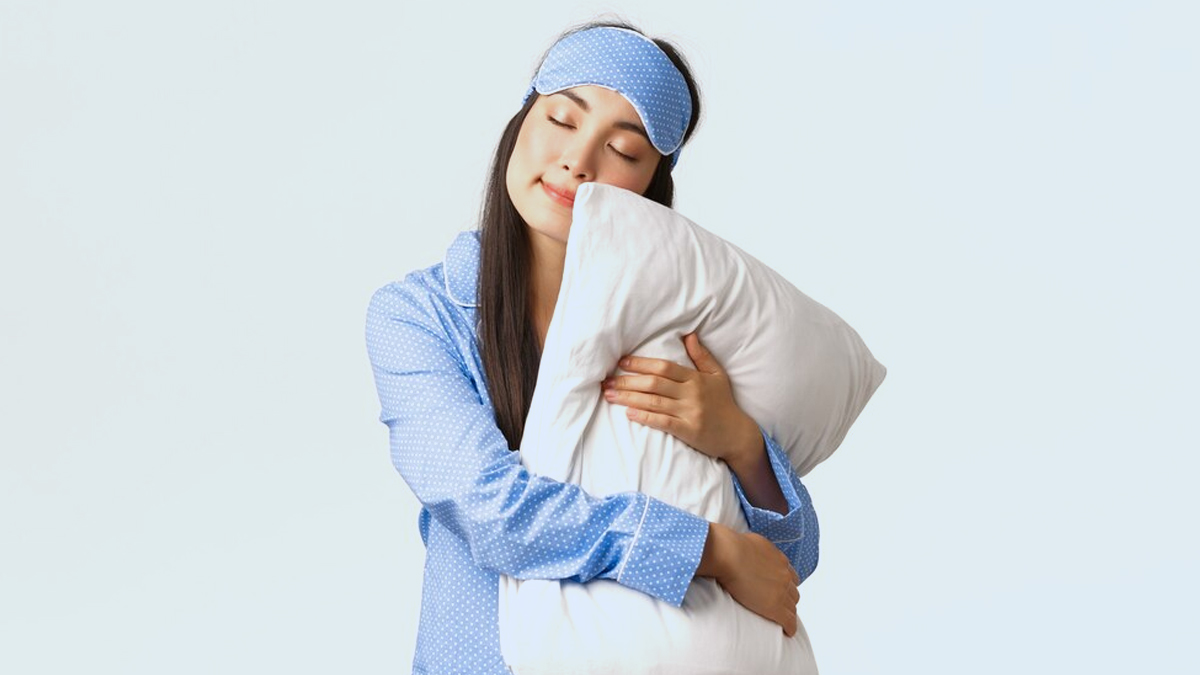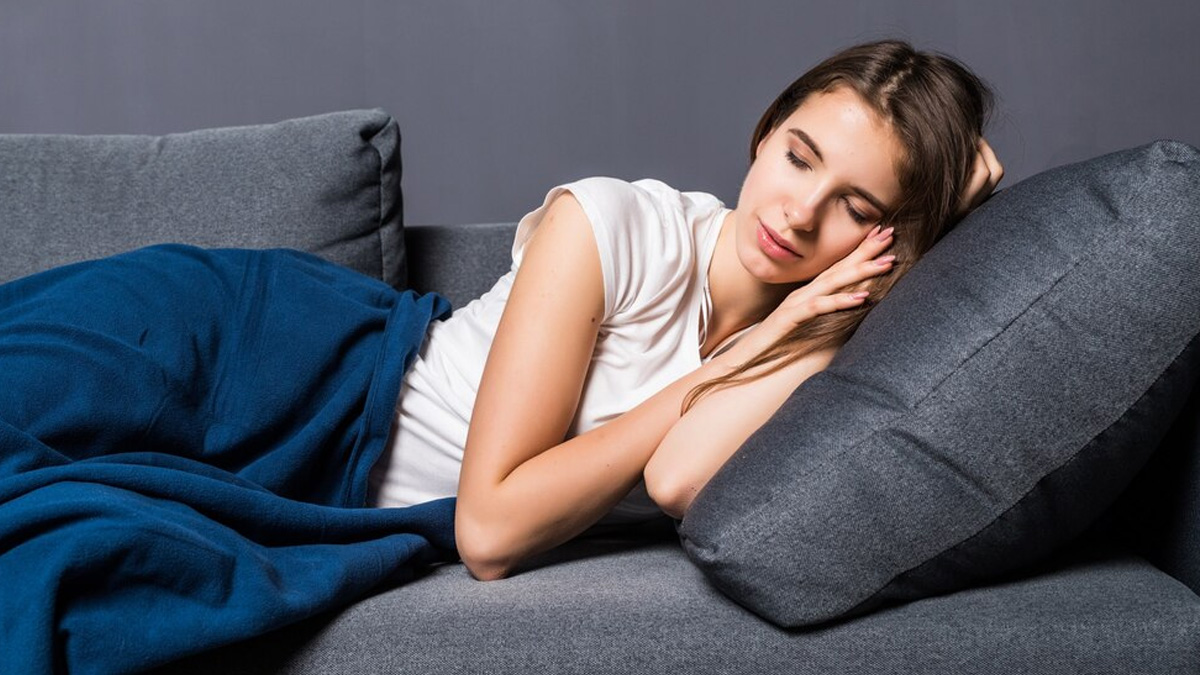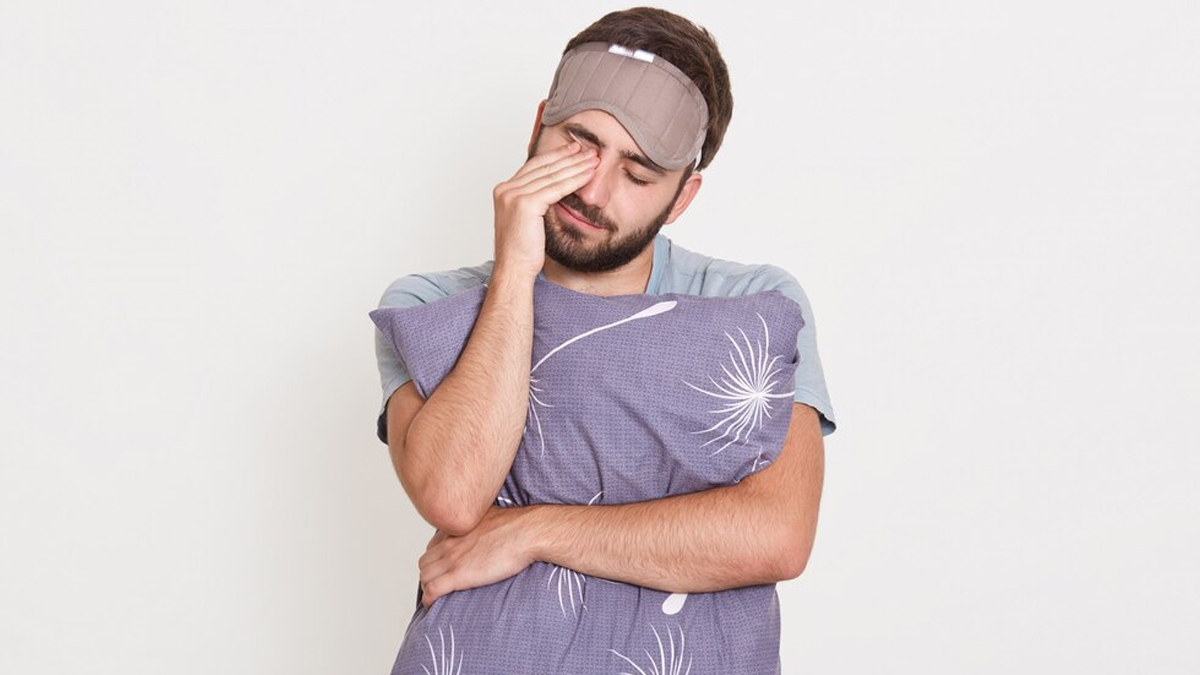
Do you often find yourself struggling to fall asleep on time or get good-quality rest? If that's the case, you may already be searching for ways to improve your sleep hygiene—or perhaps you’re not sure where to start. In the age of social media, platforms like TikTok are quick to offer a range of remedies, even when you’re not actively looking for them. One such trend that has recently gone viral is ‘sleepmaxxing,’ a term used to describe strategies aimed at maximising sleep quality and quantity. While it has received a lot of attention, questions remain about whether sleepmaxxing is a safe and effective approach to improving overall sleep health. Let's find out.
Table of Content:-
Also Read: Your Alarm Sound Could Be Raising Your Blood Pressure Levels? Expert Explains The Link
What Is Sleepmaxxing?

Sleepmaxxing is a trending online concept that claims to optimise sleep habits for both physical and mental health benefits. It involves improving sleep hygiene through a combination of strategies, such as using technology, taking supplements, and adhering to strict sleep schedules, all with the aim of enhancing both the quality and quantity of sleep.
The Sleep Foundation emphasises that good-quality sleep involves more than just clocking a set number of hours. "Healthy sleep requires more than just sleeping for a certain number of hours. Sleep quantity is important, but for sleep to be satisfying and refreshing, it must also be of high quality—that is, without interruptions that disrupt the sleep cycle," the organisation states.
Despite its popularity, whether sleepmaxxing is an effective or sustainable strategy for achieving truly healthy sleep remains to be determined.
What Does Sleepmaxxing Involve?

Sleepmaxxing often includes the use of technology, such as sleep tracking devices or apps, taking supplements like melatonin for better sleep, using white noise machines, wearing weighted blankets, mouth-taping to practise nose breathing, and following strict sleep schedules. The online trend encourages prioritising sleep as a key aspect of physical and mental well-being, with a focus on creating a sleep-friendly environment and establishing routines that promote uninterrupted rest. While it has gained popularity on social media platforms, its long-term effectiveness remains an area of ongoing discussion.
Is Sleepmaxxing Safe Or Unsafe?
The idea behind sleepmaxxing, which emphasises prioritising good sleep habits, may seem appealing and even beneficial at first glance. However, the trend often takes a rigid and obsessive approach, encouraging people to follow strict sleep routines, technology usage, and supplementation, which can turn into an unhealthy fixation.
Such extremes may create undue stress and pressure. Reports even suggest that sleepmaxxing can lead to conditions, such as orthosomnia, a term used to describe an unhealthy obsession with achieving perfect sleep.
So, instead of cultivating a balanced relationship with sleep, the inflexible nature of sleepmaxxing can lead to anxiety about achieving perfect sleep, which is impossible and potentially harmful. It is important to understand that there is no one-size-fits-all strategy to improve sleep, and people must do what benefits them the most.
Also Read: How To Distinguish Between Tiredness And Excessive Daytime Sleepiness; Why It Matters
Scientifically-Backed Ways To Improve Sleep

There are several research-backed ways to improve sleep, which are not only beneficial but also sustainable in the long run. While online trends can seem appealing, they aren't the best to rely on. Some of the strategies that have been given a go-ahead by science include:
- Stick to a proper sleep schedule; go to bed and wake up at the same time every day.
- Indulge in regular exercise every day, but not close to bedtime.
- Avoid nicotine and caffeine.
- Avoid alcohol and large meals before bedtime.
- Limit screen time before bed.
- Create a good sleeping environment; keep the temperature cool, get rid of sound and light distractions, make it dark, and keep your phones in silence.
Remember, if nothing helps and you continue to have trouble sleeping, see a health care provider to determine the underlying problem.
[Disclaimer: This content is for informational purposes only and does not constitute medical advice. Always consult a qualified healthcare professional for personalised recommendations regarding sleep health and related concerns.]
Also watch this video
How we keep this article up to date:
We work with experts and keep a close eye on the latest in health and wellness. Whenever there is a new research or helpful information, we update our articles with accurate and useful advice.
Current Version